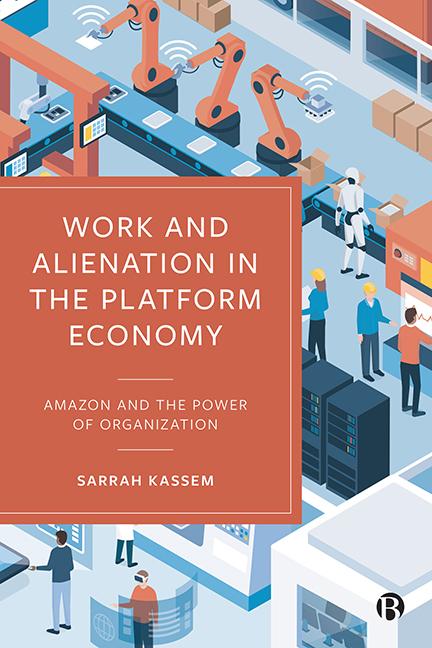11 - The Power of Amazon Workers and Platform Workers
Published online by Cambridge University Press: 18 January 2024
Summary
While platforms systematically organize work and workers in ways that alienate them, the different Amazon workforces demonstrate that such alienation, while it has implications for the larger fragmentation of workers, is not all-encompassing. In some cases, Amazon warehouse workers may indeed show no interest in collective organization, identify with Amazon and perceive the workplace surveillance as legitimate and labor organization in fact as illegitimate. Meanwhile, MTurk workers celebrate their flexibility and freedoms, some not even perceiving their labor as work at all. Yet if we analyze how these workers mobilize their power resources, these cases are among many contemporary examples that demonstrate that workers do claim their agency, dismissing the passive portrayals of what Taylor and Smith regarded as a “trained gorilla”. Amazon warehouse workers and MTurk workers show that the formation of class consciousness and conducive material conditions are essential for workers to mobilize their different powers. I have only touched upon the complex process of class consciousness and solidarity, to which gender and race can be integral, forming and reforming differently through interacting general capitalist conditions. These include the intensification of exploitation, crises and unemployment – and relative conditions – such as the degree of socialization of the labor process, exposure to unions, labor history and personal experiences. The broad differences in these conditions make it difficult to generalize across the platform economy, both in terms of the different organizations of platforms but also in terms of the different material conditions that workers are confronted with. The realities of globally distributed workers of the same platform, let alone across different platforms, can strongly vary.
What can, however, be inferred regarding the platform organization is the different degrees of socialization of the labor process that bring about the cooperation of workers within their relations of production. The case of Amazon warehouse workers, reminiscent of more historical organization of workers in factories, underlines the importance of assembling workers within a physical space to bring about their social organization. It is only ever their collective labor that ensures the circulation of products to the customer.
- Type
- Chapter
- Information
- Work and Alienation in the Platform EconomyAmazon and the Power of Organization, pp. 149 - 168Publisher: Bristol University PressPrint publication year: 2023



